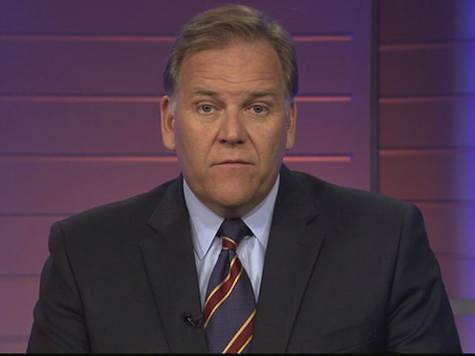On Sunday, Rep. Mike Rogers (R-MI), the Chairman of the House Intelligence Committee, and Sen. Dianne Feinstein (D-CA), the Chairwoman of the Senate Intelligence Committee, said the person who leaked information about the National Security Agency’s data collection programs should be prosecuted. They also said the leaker and the reporter to whom the information was given do not know how the programs really work.
Glenn Greenwald broke the story last week in the UK Guardian about how Verizon has been giving the private domestic and international phone records of all of its customers to the federal government. After the Washington Post broke the story about the NSA’s PRISM program, Greenwald reported the NSA collected nearly 3 billion pieces of intelligence from American computer networks over a 30-day period that ended in March of 2013.
Appearing on ABC’s “This Week,” Rogers these programs have been used to stop terrorist attacks and were needed for national security purposes. He also said he believed the programs were effective and believed the person who released the information to Greenwald “did not have authorization to” do so and said Greenwald “doesn’t have a clue how this thing works” and “neither did the person who released just enough information to literally be dangerous.”
Rogers felt the leaker should be prosecuted and Feinstein agreed.
Earlier on the show, Greenwald had said “the only thing we’ve endangered is the reputation of the people in power who are building this massive spying apparatus without any accountability who are trying to hide from the American people what it is that they are doing.”
Greenwald said there was “no national security harm from letting people know that they are collecting all phone records, that they are tapping into the Internet, that they are planning massive cyber attacks both foreign and–and even domestic” and said “these are things that the American people have a right to know.”
He said the credibility of political officials have been damaged last week and this debate needs to be had “out in the open.”
“So we reported these discrepancies precisely because we want them — those parties to resolve it in — in public, in sunlight, and– and let people decide whether or not that’s the kind of country they want to live in when — when the government can — can get this massive amount of information,” he said. “And if the people decide that they — yes, they do want the government knowing everything about them, intervening in all of their communications, monitoring them, keeping dossiers on them, then so be it. But at least we should have that debate openly and democratically.”
He added, “unfortunately, since the government hides virtually everything that they do at the threat of criminal prosecution, the only way for us to learn about them is through these courageous whistle-blowers who deserve our praise and gratitude and not imprisonment and prosecution.”
Greenwald said he has not yet been contacted by the FBI or the government and said he would be more than happy to speak to them, “and I will tell them that there is this thing called the Constitution, and the very First Amendment of which guarantees a free press. As an American citizen, I have every right and even the obligation as a journalist to tell my fellow citizens and our readers what it is that the government is doing.”

COMMENTS
Please let us know if you're having issues with commenting.